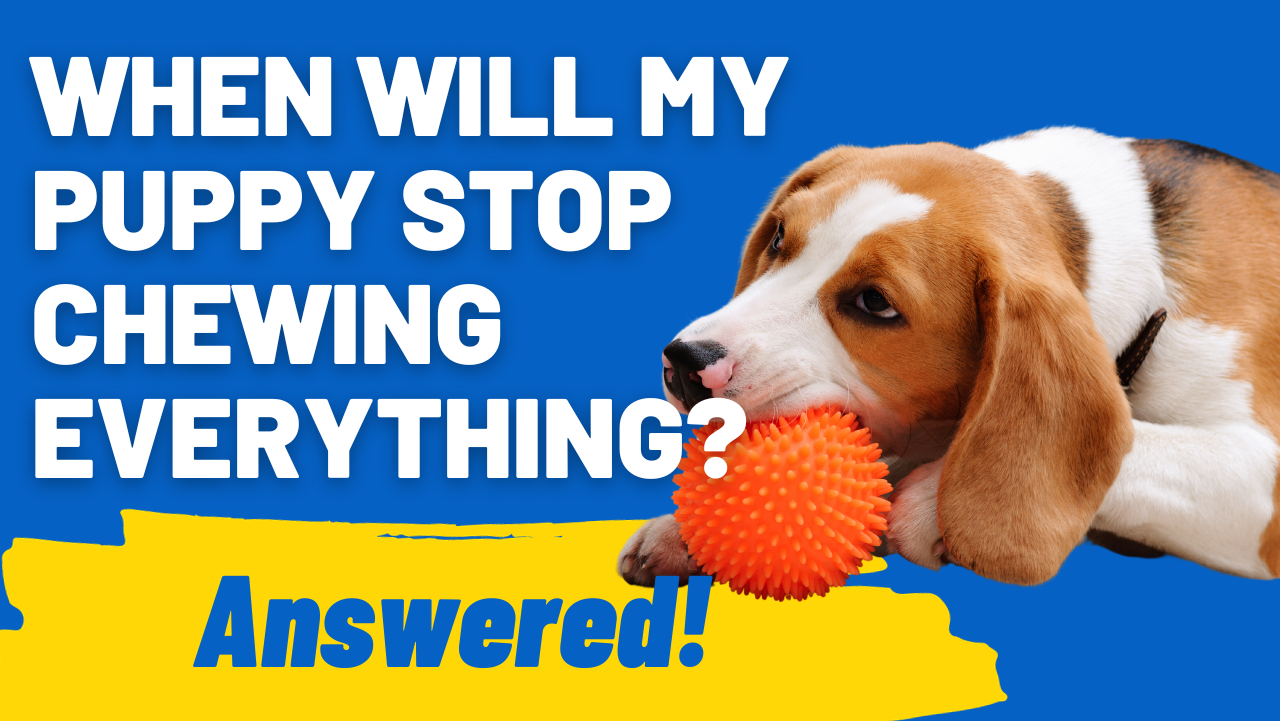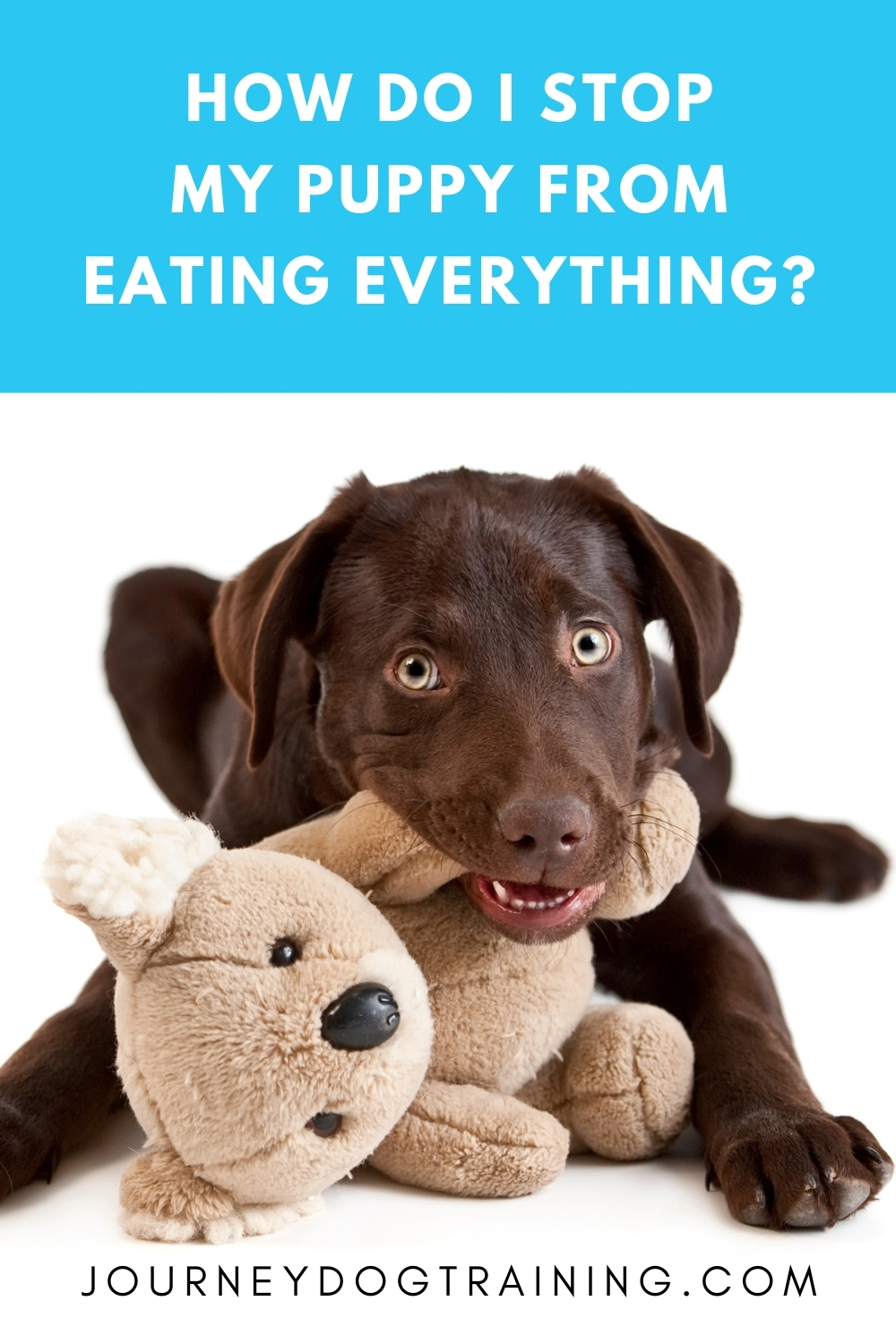How To Get A Puppy To Stop Eating Everything: A Comprehensive Guide For Responsible Pet Owners
Having a puppy at home can be a joyous experience, but it also comes with its own set of challenges, especially when your furry friend starts eating everything in sight. This behavior is not only frustrating but can also pose serious health risks to your puppy. Understanding why your puppy eats everything and learning how to get a puppy to stop eating everything is crucial for their well-being.
If you're a new puppy owner, you're likely wondering how to address this issue effectively. This guide will provide you with practical tips, expert advice, and actionable steps to help curb this undesirable habit. By following these strategies, you'll not only protect your belongings but also ensure your puppy grows up healthy and well-behaved.
In this article, we will explore the reasons behind this behavior, discuss preventive measures, and share effective training techniques. Whether you're dealing with a teething puppy or simply trying to redirect their attention, you'll find all the answers you need to stop your puppy from eating everything.
Read also:Courtney Salviolo Rising Star In The Entertainment Industry
Table of Contents
- Why Do Puppies Eat Everything?
- Health Risks Associated with Eating Non-Food Items
- Effective Training Techniques to Stop Puppies from Eating Everything
- Puppy Management Strategies
- Top Tips for Preventing Puppies from Eating Everything
- Creating a Safe Environment for Your Puppy
- Proper Feeding Practices for Puppies
- The Importance of Exercise and Mental Stimulation
- Addressing Behavioral Issues in Puppies
- Expert Advice on How to Get a Puppy to Stop Eating Everything
Why Do Puppies Eat Everything?
Puppies are naturally curious creatures, and their mouths are their primary tool for exploring the world around them. Understanding why your puppy eats everything is the first step in addressing this behavior.
One of the main reasons is teething. Puppies go through a teething phase between 3 and 6 months of age, during which they experience discomfort and a strong urge to chew on objects to relieve the pressure on their gums.
Additionally, puppies may eat non-food items due to boredom, anxiety, or a lack of proper stimulation. In some cases, nutritional deficiencies can also trigger this behavior. By identifying the root cause, you can tailor your approach to effectively stop your puppy from eating everything.
Common Triggers for Puppies Eating Non-Food Items
Here are some common triggers that may lead to this behavior:
- Teething discomfort
- Boredom or lack of stimulation
- Separation anxiety
- Nutritional deficiencies
- Curiosity and exploration
Health Risks Associated with Eating Non-Food Items
Allowing your puppy to eat everything can lead to serious health risks. Ingesting non-food items such as toys, socks, or even small objects can cause blockages in the digestive tract, which may require surgery to remove.
Furthermore, certain household items like plants, cleaning products, and even some foods can be toxic to puppies. It's essential to be aware of these dangers and take steps to prevent your puppy from accessing potentially harmful objects.
Read also:Mary Pope Osborne And The Magic Of The Magic Tree House
According to the ASPCA, common household items like chocolate, grapes, and onions can be toxic to dogs. Educating yourself about these dangers is crucial for ensuring your puppy's safety.
Effective Training Techniques to Stop Puppies from Eating Everything
Training your puppy to stop eating everything requires patience, consistency, and positive reinforcement. Here are some effective techniques to help you address this behavior:
Positive Reinforcement
Reward your puppy with treats, praise, or playtime whenever they choose not to chew on non-food items. This will encourage them to associate good behavior with positive outcomes.
Command Training
Teach your puppy commands such as "leave it" or "drop it" to help redirect their attention away from undesirable objects. Practice these commands regularly to reinforce their understanding.
Time-Out Method
If your puppy continues to chew on non-food items despite your efforts, consider using the time-out method. Place them in a designated area for a short period to help them understand that this behavior is unacceptable.
Puppy Management Strategies
Managing your puppy's environment is key to preventing them from eating everything. Here are some strategies to help you create a safe and controlled space for your furry friend:
Puppy-Proof Your Home
Identify and remove potential hazards from your home, such as small objects, toxic plants, and dangerous chemicals. Keep these items out of reach to prevent your puppy from accessing them.
Supervision and Leash Training
Supervise your puppy closely, especially during their teething phase. Use a leash indoors if necessary to keep them under control and prevent them from wandering off and chewing on inappropriate objects.
Crating and Confinement
Consider using a crate or a confined area to keep your puppy safe when you're unable to supervise them. This will also help them learn to associate the crate with positive experiences.
Top Tips for Preventing Puppies from Eating Everything
Here are some additional tips to help you prevent your puppy from eating everything:
- Provide plenty of chew toys to satisfy their need to chew.
- Rotate toys regularly to keep your puppy engaged and prevent boredom.
- Use bitter spray on objects you don't want your puppy to chew on.
- Keep your puppy's living area clean and free of small objects.
- Ensure your puppy gets enough exercise and mental stimulation.
Creating a Safe Environment for Your Puppy
A safe environment is crucial for preventing your puppy from eating everything. Here are some steps you can take to create a safe space for your furry friend:
Secure Electrical Cords
Electrical cords can pose a serious hazard to puppies. Use cord covers or hide cords behind furniture to prevent your puppy from chewing on them.
Store Food Properly
Keep food out of reach and store it in sealed containers to prevent your puppy from accessing it. This will also help maintain a clean and organized kitchen.
Monitor Outdoor Areas
Inspect your yard for potential hazards, such as toxic plants or small objects, and remove them to create a safe outdoor space for your puppy.
Proper Feeding Practices for Puppies
Proper feeding practices can play a significant role in preventing your puppy from eating everything. Ensure your puppy is receiving a balanced diet that meets their nutritional needs.
Establish a Feeding Schedule
Feed your puppy at regular intervals to establish a routine and prevent hunger-related chewing. Consult with your veterinarian to determine the appropriate feeding schedule for your puppy's age and breed.
Monitor Portion Sizes
Overfeeding can lead to obesity and other health issues. Follow the feeding guidelines on your puppy's food packaging and adjust portions as needed based on their activity level and growth.
The Importance of Exercise and Mental Stimulation
Exercise and mental stimulation are essential for preventing your puppy from eating everything. A tired and mentally stimulated puppy is less likely to engage in destructive behaviors.
Physical Exercise
Engage your puppy in regular physical activities, such as walks, playtime, and interactive games, to burn off excess energy and reduce boredom.
Mental Stimulation
Provide puzzle toys, treat-dispensing toys, and training sessions to challenge your puppy's mind and keep them entertained.
Addressing Behavioral Issues in Puppies
Sometimes, eating everything can be a sign of underlying behavioral issues. Addressing these issues is crucial for stopping this behavior effectively.
Separation Anxiety
Separation anxiety can lead to destructive behaviors, including eating non-food items. Gradual desensitization and counter-conditioning techniques can help reduce anxiety and promote positive associations with being alone.
Attention-Seeking Behavior
Some puppies chew on non-food items to gain attention. Avoid reinforcing this behavior by ignoring your puppy when they engage in undesirable actions and rewarding them for good behavior.
Expert Advice on How to Get a Puppy to Stop Eating Everything
Consulting with experts, such as veterinarians and professional trainers, can provide valuable insights into how to get a puppy to stop eating everything. They can offer personalized advice based on your puppy's specific needs and behavior.
For example, Dr. Sarah Wooten, a veterinarian and pet expert, emphasizes the importance of consistency and positive reinforcement in training. She advises owners to focus on rewarding good behavior rather than punishing bad behavior to achieve better results.
Additionally, seeking guidance from certified trainers can help you develop a tailored training plan that addresses your puppy's unique challenges and ensures their long-term success.
Conclusion
In conclusion, stopping your puppy from eating everything requires a combination of training, management, and environmental adjustments. By understanding the reasons behind this behavior, addressing potential health risks, and implementing effective strategies, you can successfully curb this habit and ensure your puppy grows up healthy and well-behaved.
We encourage you to share your experiences and tips in the comments below. Additionally, don't forget to explore other articles on our site for more valuable information on puppy care and training. Together, let's create a happy and healthy environment for our furry friends!


